uncountable: คุณกำลังดูกระทู้
Table of Contents
Uncountable Nouns
Rules and Examples
countable
or
uncountable
.
Nouns are usuallyor
Click Here for Step-by-Step Rules, Stories and Exercises to Practice All English Tenses

Countable nouns
can be counted and have singular and plural forms.
- 1 apple/3 apples
- 1 foot/12 feet
- a mouse/several mice
Uncountable Nouns:
Uncountable nouns
(also called noncount nouns and mass nouns) are nouns
that:
- cannot be counted
- cannot be made plural
- are not usually used with the articles
“a” or “an” - cannot be used alone with numbers
We cannot “count” uncountable nouns by themselves.
For example
,
we cannot count
sugar
by itself
.
We
can
count
teaspoons
of sugar
,
cubes of
sugar
and
cups of
sugar
.
Many uncountable nouns refer to
substances
such as butter and water.
Other uncountable nouns
refer to
emotions
and
ideas
such as knowledge
and happiness.
Here are some common uncountable
nouns:
substances
emotions/ideas
sugar
love
milk
happiness
butter
power
water
patience
electricity
advice
money
grammar
news
education
coffee
sadness
work
time
sand
hate
weather
sorrow
furniture
forgiveness
food
experience
homework
peace
flour
anger
Rules for using uncountable nouns
1. Uncountable nouns have only one form
Uncountable nouns act like a singular noun.
Examples:
Uncountable
noun:
Advice
Incorrect:
- I need
advices
.
Correct:
- I need
advice
.
- I need some
advice
.
Uncountable noun: 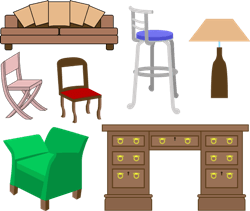
Furniture
Uncountable noun:
Incorrect:
- The room is full of
furnitures
.
Correct:
- The room is full of
furniture
.
- The room has a lot of
furniture
.
Uncountable noun:
Weather
Incorrect:
- We have had cold
weathers
this week.
Correct:
- We have had a lot of cold
weather
this week.
- We haven’t had much warm
weather
this week.
Uncountable noun:
Butter
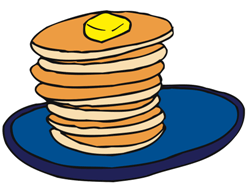
Incorrect:
- I put
butters
on my
pancakes
.
Correct:
- I put
butter
on my pancakes.
- I put a slice of
butter
on my pancakes.
2.
Uncountable nouns
do not
immediately
follow
A
or
AN
Incorrect:
- I eat
a
sugar
on my cereal.
Correct:
- I eat
sugar
on my cereal.
- I eat some
sugar
on my cereal.
- I eat
a
spoonful of
sugar
on my cereal.
Incorrect:
- You must have
an
experience
to apply for the job.
Correct:
- You must have
experience
to apply for the job.
- You must have
a
little
experience
to apply for the job.
Incorrect:
- I have
a
sand
in my shoe.
Correct:
- I have
sand
in my shoe.
- I have
a
bunch of
sand
in my shoe.
3. You can modify uncountable nouns with quantity words and
phrases
Quantity words and phrases
make uncountable nouns appear countable.
Water
cannot be counted. We do not know the amount of
water
.

But, we
CAN
count:
-
one cup of
water
-
a little bit
ofwater
-
some
water
-
a drop of
water
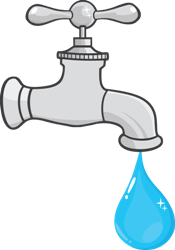
These are all amounts of
water
that can be counted.
Here are some common
quantity words and phrases
to use with
uncountable
nouns
:
- some
- any
- a little
- much
- a lot of/lots of
- a little bit of
- enough
- plenty of
- no
Examples:
- Step outside for
some
fresh air
.
- Did you bring
any
luggage
to the hotel?
- Add
a little
flour
to the dough.
- I don’t hear
much
noise
when the windows are shut.
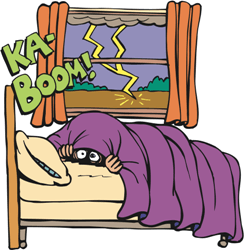
- I need
a lot of
money
for my trip.
- Jim heard
lots of
thunder
last night.
-
A
little bit ofkindness
goes a long way.
- The office does not have
enough
work
for another employee.
- Teachers need
plenty of
patience
to work with children.
- I have
no
coffee
for my guests.
4. You can modify uncountable nouns by using a word that
specifies a
container
or
a form
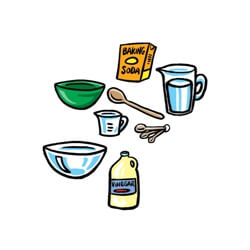
- handful/handfuls
- bottle/bottles
- jar/jars
- packet/packets
- cup/cups
- bowl/bowls
- piece/pieces
- bar/bars
- slab/slabs
- cube/cubes
- game/games
- grain/grains
- barrel/barrels
Examples:
-
handful
of grass
-
bottle
of water
-
jar
of coffee
-
cups
of tea
-
bowls
of cheese
-
piece
of equipment

-
bars
of
gold and silver
-
slab
of beef
-
cubes
of sugar
-
game
of tennis
-
grains
of sand
-
barrels
of wine
The container or form words can follow adjectives , numbers or the articles a/an/the.
Examples:
-
a
handful
of grass
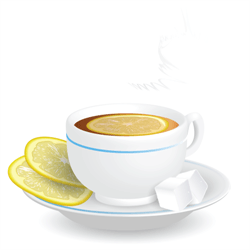
-
the two
bottles
of water
-
large
jars
of coffee
-
the
packet
of salt
-
a
warm
cup
of
tea -
half a
bowl
of cheese
-
a
piece
of equipment
-
twenty
bars
of gold or silver
-
a huge
slab
of beef
-
some
cubes
of sugar
-
a
game
of tennis
-
many
grains
of sand
-
three
barrels
of wine
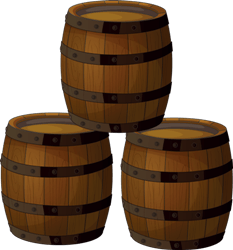
5
.
Some nouns can be countable or uncountable depending on their
meaning and how they are used in a sentence
For example, let’s look at the
word “glass.”
singular: glass
plural: glasses
A) I drank a big
glass
of juice.
B) She drank
two
glasses
.
C)
He cannot see and will have to buy
glasses
.
D)
The ball broke
glass
in the
window.
In sentences
A
and
B
,
glass is a
countable
noun
. We are talking about a
drinking glass.
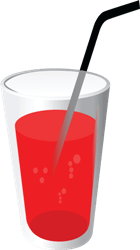
In sentence
C
,
glasses is a
countable
noun
. We are talking about a pair
of spectacles or eye glasses.
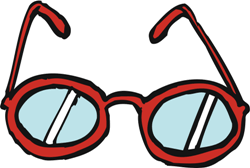
In sentence
D
,
glass is an
uncountable
noun
. We are talking about glass
as a material. The window is made of glass. The window can be counted,
but
this type of
glass cannot
be counted
.
Let’s look at another
example.
singular: language
plural: languages
A) I only
speak one
language
.
B)
She speaks three
languages
.
C) Please don’t use bad
language
.
In sentence
A
, language is a
singular countable noun
.
In sentence
B
,
languages is a
plural
countable noun
.
In sentence
C
,
language is an
uncountable
noun
.
A few other words that
can be countable or uncountable are:
- paper
- hope
- business
- death
- time
- marriage
- power
- work
- property
- hair
singular: glassplural: glassesIn sentencesand, glass is a. We are talking about a drinking glass.In sentence, glasses is a. We are talking about a pair of spectacles or eye glasses.In sentence, glass is an. We are talking about glass as a material. The window is made of glass. The window can be counted, butsingular: languageplural: languagesIn sentence, language is aIn sentence, languages is aIn sentence, language is an
These were the rules of uncountable nouns. Now that you know them, it is
time to practice:
Please share this page with others:
can be counted and have singular and plural forms.(also called noncount nouns and mass nouns) are nouns that:We cannot “count” uncountable nouns by themselves., we cannot countWecountandUncountable nouns act like a singular noun.make uncountable nouns appear countable.cannot be counted. We do not know the amount ofBut, wecount:These are all amounts ofthat can be counted.These were the rules of uncountable nouns. Now that you know them, it is time to practice: Illustrated Worksheet on Countable and Uncountable Nouns
[Update] What Are Uncountable Nouns And How Do You Use Them? | uncountable – NATAVIGUIDES
Have you ever had influenza? Do you like to spread gossip? Did you have a nice childhood? Are these questions causing you confusion? Don’t worry, you aren’t being graded right now.
We just wanted to ask some questions that use nouns, words that we use to refer to people, places, things, or ideas. We use many different types of nouns in our speech and writing, but the nouns influenza, gossip, childhood, and confusion are all the same type of noun known as an uncountable noun.

What is an uncountable noun?
An uncountable noun, also called a mass noun, is “a noun that typically refers to an indefinitely divisible substance or an abstract notion, and that in English cannot be used, in such a sense, with the indefinite article or in the plural.”
What exactly does this mean in less technical language? Well, an uncountable noun refers to something that can’t be counted with numbers. For that reason, uncountable nouns normally don’t use the articles a or an and don’t have plural forms. For example, you don’t feel a happiness nor does the noun Pacific Ocean have a plural form (we don’t have Pacific Oceans). It would also be pretty weird to try to count things referred to by uncountable nouns, such as 1 peace or 37 peaces.
However, an uncountable noun may use a plural verb if it is treated as a plural word. For example, the word police is an uncountable noun (you can’t have two or three polices) but it uses a plural verb as in The police are on their way.
One last thing to keep in mind is that many words have multiple meanings and so a noun may be an uncountable noun or not depending on context. For example, the word iron is an uncountable noun when it is referring to the chemical element (a molecule doesn’t have three irons) but it is not an uncountable noun when referring to an appliance used to get wrinkles out of clothing (you can buy three irons at the store).
Another type of noun that often crosses paths with uncountable nouns are abstract nouns. Learn more about them here.
Uncountable noun examples
Uncountable nouns can be hard to spot, so let’s look at some examples.
Emotions, ideas, and concepts
Most uncountable nouns refer to intangible concepts or abstract ideas. Because these things don’t actually exist as material objects, it would usually be impossible to count them. However, not all abstract nouns are uncountable nouns. It is possible to have three possibilities or to have a concern and so these are not uncountable nouns. If you can count a noun, it’s known as a countable noun—and we’ll discuss these too shortly.
- Emotions: sadness, anger, enthusiasm, hesitation, unease
- Qualities: bravery, shyness, cowardice, agility, intelligence, pride
- Ideas: chaos, peace, anarchy, nihilism, capitalism
Objects
Sometimes, objects are referred to using uncountable nouns. These too might have a sense in which they are also used as countable nouns.
- Foods: water, milk, bread, honey, sugar, meat, pork
- Chemical elements: hydrogen, oxygen, gold, uranium
- Weather: rain, snow, fog, hail, lightning, thunder, sleet
- Collective nouns (i.e., “a whole group as a single entity”): furniture, clothing, equipment, machinery
Uncountable nouns and fewer vs. less
Uncountable nouns lead us to the heated fewer vs. less debate. In general, we use fewer with countable nouns as in I need to buy fewer apples next time and less with uncountable nouns as in I think the puppy did better with less discipline. However, there are many exceptions to this general rule, such as when referring to distances as in The store is less than three miles away.
The words less and fewer are used interchangeably more and more often in everyday day speech (no matter how grammar purists may feel about it—and they often feel very strongly about it).
List of uncountable nouns
Uncountable nouns can be difficult to find, so let’s put together a list of uncountable nouns you are likely to see.
- aggression, bookishness, calm, dedication, entertainment, fun, gratitude, help, isolation, junk, kleptomania, laziness, mustard, news, originality, patience, quiet, rice, stuff, traffic, ugliness, vastness, wanderlust, xenon, yoga, zest
The difference between uncountable & countable nouns
While uncountable nouns refer to things that can’t be counted, countable nouns refer to people, places, and things that can be counted. Unlike uncountable nouns, countable nouns will often use the articles a or an and can have singular or plural forms. Countable nouns are much more common than uncountable nouns, and it is usually straightforward to tell if a person, place, or thing can be counted or not. But grammar likes to throw plenty of curveballs, too.
Need a refresher on countable nouns? We’ve got your number! Check out this article that offers more detail on them here.
You will need to watch out for words that can be either an uncountable or a countable noun depending on meaning and context. Also remember that not all collective nouns and abstract nouns are uncountable nouns: the word problem is an abstract noun and a countable noun (you can have a problem or 99 problems). The word army is a collective noun, and it too is a countable noun (you can be a member of an army and a battle could involve two armies).
Let’s finish things up with a test of your understanding of uncountable nouns. Read each of the following sentences and see if you can figure out why each noun is or is not an uncountable noun.
- He suffered from loneliness.
- She has a lot of pets.
- They came to an agreement.
- She has nerves of steel.
- The bucket was filled with wine.
- Charles’s cellar is full of expensive wines.
This topic might just inspire you to say: I love grammar (uncountable), but those nouns (countable) cause me trouble.
You can count on Grammar Coach™
We’ve got a noun for you: genius! And that’s what you’ll be when you check your writing on Thesaurus.com’s Grammar Coach™. Grammar Coach™ uses machine learning technology uniquely designed to catch grammar and spelling errors. Its Synonym Swap will find the best nouns, adjectives, and more to help say what you really mean, guiding you toward clearer, stronger, writing.
Whether you’re writing about a person, place, or thing, perfect grammar has never been easier!
Answers: 1. Uncountable 2. Countable 3. Countable 4. Uncountable 5. Uncountable 6. Countable
Unstoppable – Sia (Lyrics + Vietsub) ♫
Unstoppable Sia
Original Video: https://youtu.be/cxjvTXo9WWM
📺 Xem nhiều hơn: https://www.youtube.com/TopTikTokTV
👉 Đăng ký kênh ủng hộ bọn tớ: http://bit.ly/2BnuV2z
🎵 Follow Top Tik Tok:
https://www.instagram.com/__toptiktok
https://www.youtube.com/toptiktoktv
🎵 Follow Sia:
https://www.facebook.com/SiaMusic/
https://www.instagram.com/siamusic/
https://twitter.com/Sia
📸 Background:
Artwork from (Artstation): https://www.artstation.com/artwork/3oLGwA
Artist: Hou China
Dear Artists, Producers and Labels!
Top Tik Tok is a nonprofit channel for the only purpose of promoting music and artwork and learning english together, if you as an Artist/Producer/Label feels unhappy and would like to have your music/artwork taken down, please contact us via the email ([email protected]) directly before doing anything and we will respectfully delete it immediately.
☑ We do not own the copyright for this song and artwork
☑ All rights go to their respectful owners
✉ [email protected] ✉
_____________________________________
Sunglasses(n) ▶ kính râm
Shed(v) ▶ để rơi, tuôn ra
Armor(n) ▶ áo giáp
Brake(n) ▶ cái phanh
Powerful(adj) ▶ mạnh mẽ
Confident(adj) ▶ tự tin
Cry out lound ▶ khóc lớn
Afraid(adj) ▶ sợ
_____________________________________
🎤 Lyrics:
I’ll smile, I know what it takes to fool this town
I’ll do it ’til the sun goes down and all through the night time
Oh yeah
Oh yeah, I’ll tell you what you wanna hear
Keep my sunglasses on while I shed a tear
It’s never the right time, yeah
I put my armor on, show you how strong I am
I put my armor on, I’ll show you that I am
I’m unstoppable, I’m a Porsche with no brakes
I’m invincible, yeah, I win every single game
I’m so powerful, I don’t need batteries to play
I’m so confident; yeah, I’m unstoppable today
Unstoppable today, unstoppable today
Unstoppable today, I’m unstoppable today
Break down, only alone I will cry out loud
You’ll never see what’s hiding out
Hiding out deep down, yeahyeah
I know, I’ve heard that to let your feelings show
It’s the only way to make friendships grow
But I’m too afraid now, yeah
I put my armor on, show you how strong I am
I put my armor on, I’ll show you that I am
I’m unstoppable, I’m a Porsche with no brakes
I’m invincible, yeah, I win every single game
I’m so powerful, I don’t need batteries to play
I’m so confident; yeah, I’m unstoppable today
Unstoppable today, unstoppable today
Unstoppable today, I’m unstoppable today
Unstoppable today, unstoppable today
Unstoppable today, I’m unstoppable today
I put my armor on, show you how strong I am
I put my armor on, I’ll show you that I am
I’m unstoppable, I’m a Porsche with no brakes
I’m invincible, yeah, I win every single game
I’m so powerful, I don’t need batteries to play
I’m so confident; yeah, I’m unstoppable today
Unstoppable today, unstoppable today
Unstoppable today, I’m unstoppable today
Unstoppable today, unstoppable today
Unstoppable today, I’m unstoppable today
_____________________________________
unstoppable tiktokmusic toptiktok
นอกจากการดูบทความนี้แล้ว คุณยังสามารถดูข้อมูลที่เป็นประโยชน์อื่นๆ อีกมากมายที่เราให้ไว้ที่นี่: ดูเพิ่มเติม

Countable and Uncountable Nouns in English for Smart Kids and Teachers Online classes with Pictures
Countable and uncountable nouns
It’s important to distinguish between countable and uncountable nouns in English because their usage is different in regards to both determiners and verbs.
Countable nouns
Countable nouns are for things we can count using numbers. They have a singular and a plural form. The singular form can use the determiner \”a\” or \”an\”. If you want to ask about the quantity of a countable noun, you ask \”How many?\” combined with the plural countable noun.
Singular Plural
one dog two dogs
one horse two horses
one man two men
one idea two ideas
one shop two shops
Examples
She has three dogs.
I own a house.
I would like two books please.
How many friends do you have?
Uncountable nouns
Uncountable nouns are for the things that we cannot count with numbers. They may be the names for abstract ideas or qualities or for physical objects that are too small or too amorphous to be counted (liquids, powders, gases, etc.). Uncountable nouns are used with a singular verb. They usually do not have a plural form.
Examples
tea
sugar
water
air
rice
knowledge
beauty
anger
fear
love
money
research
safety
evidence
We cannot use a/an with these nouns. To express a quantity of an uncountable noun, use a word or expression like some, a lot of, much, a bit of, a great deal of , or else use an exact measurement like a cup of, a bag of, 1kg of, 1L of, a handful of, a pinch of, an hour of, a day of. If you want to ask about the quantity of an uncountable noun, you ask \”How much?\”
Examples
There has been a lot of research into the causes of this disease.
He gave me a great deal of advice before my interview.
Can you give me some information about uncountable nouns?
He did not have much sugar left.
Measure 1 cup of water, 300g of flour, and 1 teaspoon of salt.
How much rice do you want?
Tricky spots
Some nouns are countable in other languages but uncountable in English. They must follow the rules for uncountable nouns. The most common ones are:
accommodation, advice, baggage, behavior, bread, furniture, information, luggage, news, progress, traffic, travel, trouble, weather, work
Examples
I would like to give you some advice.
How much bread should I bring?
I didn’t make much progress today.
This looks like a lot of trouble to me.
We did an hour of work yesterday.
Be careful with the noun hair which is normally uncountable in English, so it is not used in the plural. It can be countable only when referring to individual hairs.
Examples
She has long blond hair.
The child’s hair was curly.
I washed my hair yesterday.
My father is getting a few grey hairs now. (refers to individual hairs)
I found a hair in my soup! (refers to a single strand of hair)
In English grammar, words that refer to people, places, or things are called nouns. They can be classified in many ways.
One way to classify nouns is according to whether they can be counted or not. Many English mistakes are related to this point. By reading through this page, you will understand:
what countable and uncountable nouns are
how to use them correctly in a sentence
Countable (or count) nouns are words which can be counted. They have a singular form and a plural form. They usually refer to things. Most countable nouns become plural by adding an ‘s’ at the end of the word.
For example:
Singular Plural
chair chairs
bottle bottles
student students
Uncountable (or noncount) nouns are words which cannot be counted. Therefore, they only have a singular form. They have no plural forms. These words are thought of as wholes rather than as parts. They usually refer to abstractions (such as confidence or advice) or collectives (such as equipment or luggage).
For example:
Singular
money
furniture
information
List of Uncountable Nouns (These are sample uncountable nouns only! There are many more.)
General
homework
equipment
luggage
clothing
furniture
machinery
gold
silver
cotton
glass
jewelery
perfume
soap
paper
wood
petrol
gasoline
baggage
hair
traffic
Abstract
advice
help
fun
recreation
enjoyment
information
knowledge
news
patience
happiness
progress
confidence
courage
education
intelligence
space
energy
laughter
peace
pride
Food
food
flour
meat
rice
cake
bread
ice cream
cheese
toast
pasta
spaghetti
butter
oil
honey
soup
fish
fruit
salt
tea
coffee
Weather
thunder
lightning
snow
rain
sleet
ice
heat
humidity
hail
wind
light
darkness
Languages
English
Portuguese
Hindi
Arabic
Japanese
Korean
Spanish
French
Russian
Italian
Hebrew
Chinese
Subjects/Fields
mathematics
economics
physics
ethics
civics
art
architecture
music
photography
grammar
chemistry
history
commerce
engineering
politics
sociology
psychology
vocabulary
archaeology
poetry
Sports
golf
tennis
baseball
basketball
soccer
football
cricket
hockey
rugby
chess
poker
bridge
Activities
swimming
walking
driving
jogging
reading
writing
listening
speaking
cooking
sleeping
studying
working
Hope that helps… Please dont forget to like, share, and subscribe to your favourite channel….!!!!!!!!!!!!!!!!

Count, Noncount Nouns Song – Rockin’ English
Animated musical English lesson on count and noncount nouns. Sing along, learn English and rock!
We can count the stars
We can count the numbers,
trees and books and cars
months and years and hours
but snow and rain
we can’t count the weather.
Time and space
we can only measure
We can count the clouds.
We can count the numbers,
birds and bees and pounds,
wishes dreams and flowers,
but North and South
we can only measure.
Water and air
happiness like weather
we can’t count.

Uncountable Nouns – English Grammar Lesson
Do you know the difference between countable and uncountable nouns? The basic difference is quite simple, but this topic still needs attention. Often, countable and uncountable nouns are different in different languages. Also, some nouns can be both countable and uncountable with different meanings! We’ll look at these ideas in this lesson, and you can see how uncountable nouns work in English. Learn more with a certified English teacher: http://bit.ly/ooeteachers.
What’s the difference between paper and a paper? Why do we say trousers are… but news is…? Why can’t you say, ‘Can you give me an advice’?
You’ll learn the answers to all these questions in this lesson.
See the full version of this free lesson here:
https://www.oxfordonlineenglish.com/uncountablenouns
Contents:
1. A basic guide to uncountable nouns 0:40
2. Which nouns are uncountable? 4:06
3. Nouns can be countable and uncountable 7:09
4. Some other strange nouns 12:39
5. Making uncountable nouns countable 16:09
In this lesson you can learn:
The basic rules of uncountable nouns.
How to tell which nouns are uncountable.
How some nouns can be both countable and uncountable.
About uncountable nouns that are always in the plural form.
Ways to make uncountable nouns countable.
SUBSCRIBE to continue improving your English! https://goo.gl/UUQW8j
Become an OOE member to see our newest lessons before they’re available to the public, and more! https://www.youtube.com/channel/UCNbeSPp8RYKmHUliYBUDizg/join
See more free Oxford Online English lessons here: https://www.oxfordonlineenglish.com/freeenglishlessons

MUCH or MANY or A LOT OF??? Countable and Uncountable Nouns!
How do you use these 3 confusing words? I will explain in this lesson!
Visit my website for free PDFs and an interactive pronunciation tool! https://englishwithlucy.co.uk
MY SOCIAL MEDIA:
Personal Channel: http://bit.ly/LucyBella (I post subtitled vlogs of my life in the English countryside! Perfect for listening practice!)
Instagram: @Lucy http://bit.ly/lucyinsta
My British English Pronunciation Course is now LIVE: https://englishwithlucy.co.uk/pronunciationcourse (use code YOUTUBE10 for a 10% discount!)
Do you want to improve your pronunciation? I have launched my British English (Modern RP) pronunciation course! I’ll train you to read phonetic transcriptions, and produce each sound that comprises modern received pronunciation. I’ll also teach you how to implement the correct use of intonation, stress, rhythm, connected speech, and much more. We’ll compare similar sounds, and look at tricky topics like the glottal stop and the dark L.
Technically, I need to mark this as an AD even though it is my own company so AD 🙂
Want to get a copy of my English Vocabulary Planners? Click here: https://shop.englishwithlucy.co.uk The best offer is the 4book bundle where you get 4 planners for the price of 3. This product is very limited don’t miss out. The English Plan will be shipped from early August, from me here in England to you across the world! We ship internationally!
Watch my explainer video here: https://bit.ly/TheEnglishPlanVideo
Practice speaking: Earn $10 free italki credit: https://go.italki.com/englishwithlucy… (ad affiliate)
Improve listening! Free Audible audiobook: https://goo.gl/LshaPp
If you like my lessons, and would like to support me, you can buy me a coffee here: https://kofi.com/englishwithlucy
FREE £26 Airbnb credit: https://www.airbnb.co.uk/c/lcondesa (ad affiliate)
Email for business enquiries ONLY: [email protected]
Social Media:
Instagram: @LearnEnglishWithLucy
Facebook: https://www.facebook.com/EnglishwithLucy
Patreon: https://www.patreon.com/englishwithlucy

นอกจากการดูบทความนี้แล้ว คุณยังสามารถดูข้อมูลที่เป็นประโยชน์อื่นๆ อีกมากมายที่เราให้ไว้ที่นี่: ดูวิธีอื่นๆLEARN FOREIGN LANGUAGE
ขอบคุณที่รับชมกระทู้ครับ uncountable